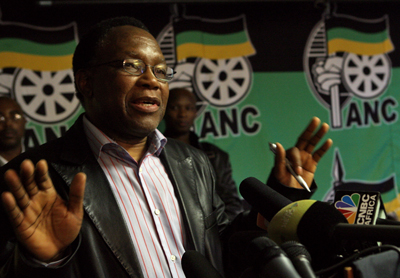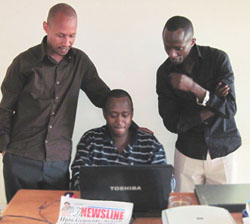Internet blotter
Computers belonging to South Korean government officials have been infiltrated by targeted malware in email. Chinese hackers are suspected. Contrary to what this article says, I’m betting that the attachments were PDFs, which are currently the document of choice when attempting to infect journalists’ machines. Another intriguing academic paper, this time on the structure of…
Use your Blackberry to map global surveillance
The University of Toronto’s Citizen Lab has announced a research project to analyze the global infrastructure of Research In Motion, maker of the BlackBerry. It’s looking for BlackBerry users from any country to take part–especially those in the United Arab Emirates, Saudi Arabia, India, Indonesia, Russia and China. All of these countries have at some point…

South Africa weighs dropping media tribunal plan
For the first time in South Africa’s months-long debate over the proposal for a government-run media appeals tribunal, a top official from the African National Congress (ANC) indicated on Friday that the plan could be dropped altogether–under certain conditions.
Obiang prize suspended indefinitely
The Obiang prize, named for and funded by one of Africa’s most notorious dictators, was a very poor idea from the start and our goal, bluntly, was to kill it. We didn’t quite succeed in getting an outright cancellation, but the prize, while technically alive, is in a deep coma with virtually no chance of…
Internet blotter
CPJ protested the arrest of Bahrain blogger Ali Abdel Imam back in September — The Wall Street Journal has a story on his continuing detainment. Activism around the imprisonment of Canadian-Iranian blogger Hossein Derakhshan continues: PEN Canada is focusing on his case and Canada and France’s foreign ministers have urged his release. Local Thai ISPs are…
How many beat the world’s Net censors?
Here’s a great study by the Harvard’s Berkman Center, estimating the actual usage of anti-censorship tools by Internet users in countries with pervasive website blocking.Berkman estimates that 3% or less of the total Net population in these countries bypass censorship via web and http proxies, virtual private networks, or circumvention software like Tor and Psiphon.The…
Internet Blotter
Omid Memarian gives insight into the Iranian hardliner in-fighting that led to “blogfather” Hossein Derakhshan’s arrest and sentencing.Pakistan blocks Facebook, but doesn’t block militant jihadi sites.What happened when the authorities shut down the Internet in China’s Xinjiang province.”Deleted” Facebook photos can stay available for years (from the excellent Ars Technica, now banned in Iran).Quote of…

Mission Journal: A visit to Russia’s Supreme Court
At the end of our recent mission to Moscow, our delegation squeezed in one final official meeting. Vyacheslav M. Lebedev, the chief justice of Russia’s Supreme Court, had sent word only the night before that he would receive us. The meeting had been brokered by Aleksei Venediktov, the legendary founder of the radio station Ekho…

Censored in Rwanda, editors work from exile
Though it has been a dark year for Rwanda’s press, it has also been a year of resistance and turning to a new sort of reporting–from exile. Ever since Rwandan authorities began cracking down on the nation’s independent press before the presidential elections in August, the space for critical reporting has been dissipating.
